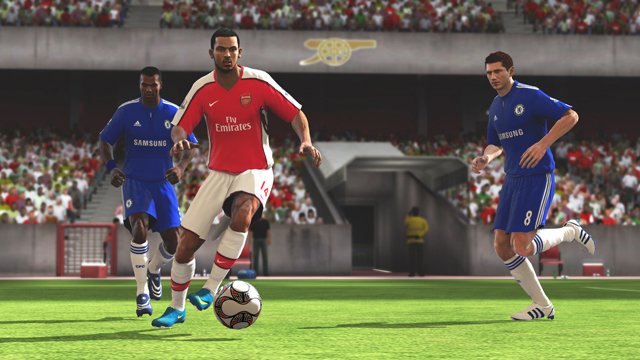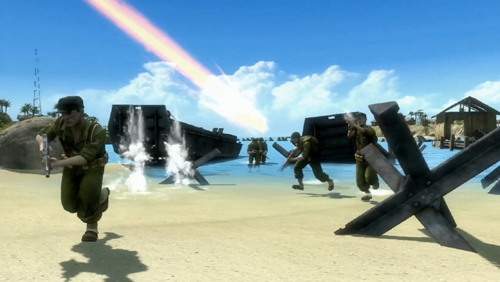This post has not been edited by the GamesBeat staff. Opinions by GamesBeat community writers do not necessarily reflect those of the staff.
Editor's note: Alex argues that competitive online games don't require the same suspension of disbelief that story-driven, single-player titles do. This affords developers the distinct opportunity to favor fair and arbitrary rules over world-appropriate logic. He uses soccer's offside rule and spawn camping to illustrate his point. -James

Spawn campers are the ugliest, most annoying thing in online shooters (apart from racist, homophobic jerks). These guys are the equivalent of that kid who exclusively hangs around the other team's goal and waits for the ball to come to him. He doesn't deserve to score a point and nobody likes him, but he does it because he can and because he wants to win. All it takes to stop him is the offside rule.
In association football — soccer to you Americans — you cannot pass the ball up the field to a player who has fewer than two members of the opposing team between him and the goal line. That is essentially FIFA's offside rule. It functions similarly in other sports, and it's all about where a player can be relative to the ball.
In a game where the objective is to throw, kick, headbutt, or otherwise cajole an inflated pig's bladder into a net, it might seem arbitrary. But it's not. If you don't have this rule, the game tends to descend into scrappy, schoolboy goal-hanging and point-grabbing. It's cynical, boring, and ugly. Sound familiar?

Spawn campers do the same thing. They ruin everybody else's fun for few cheaply won points. Making spawn areas inaccessible is an easy fix, but it's a problem in almost every online shooter.
If it's so annoying — yet so fixable — why does spawn camping still exist?
When publishers bundle multiplayer in with a story-based game, it makes sense to make the online experience similar to the offline campaign. Creators have to use the same engine, art assets, guns, and physics, or it might as well be a different game. In some cases, developers even come up with a fictional justification for the multiplayer skirmishes.
Fixes that stop spawn-killing are as arbitrary as the offside rule: Why can't I go over there? How come he's invincible? They push you out of the fiction, and remind you you're playing a game with a rule book.

I love the idea that between Halo and Halo 2 a brief civil war commenced, blue and red Spartans fought it out in a box canyon. Or that while Bad Company 2 was happening, soldiers were fighting over a submarine base. But the illusion doesn't hold up beneath score counters, flags, and the shrill nattering of tween boys. One more contrivance wouldn't hurt: These games may look like war, but they function like sport.
Fantasy, immersion, and escapism are a huge part of single-player games. Hidden in role-playing servers and make-believe facilitators like Sleep Is Death, they have an online home, too.
But when I start up Halo or Battlefield, I'm not looking to escape into another universe — I'm looking for some fun competition. The same as when I go for a kick-about or — much more frequently — play FIFA.
